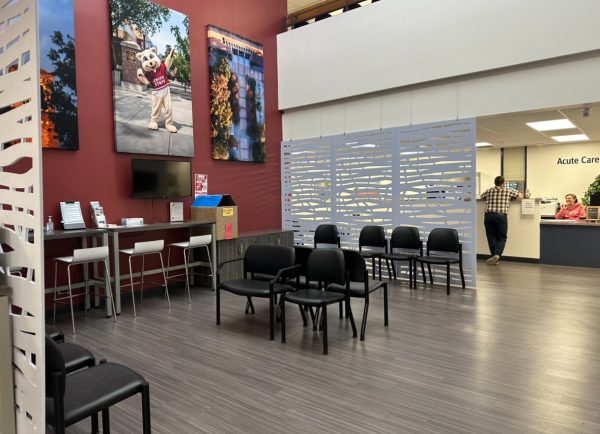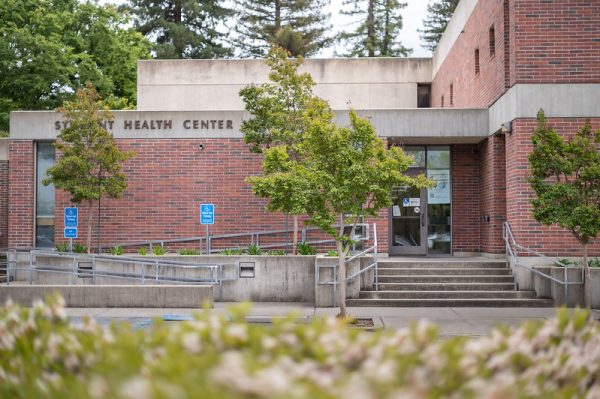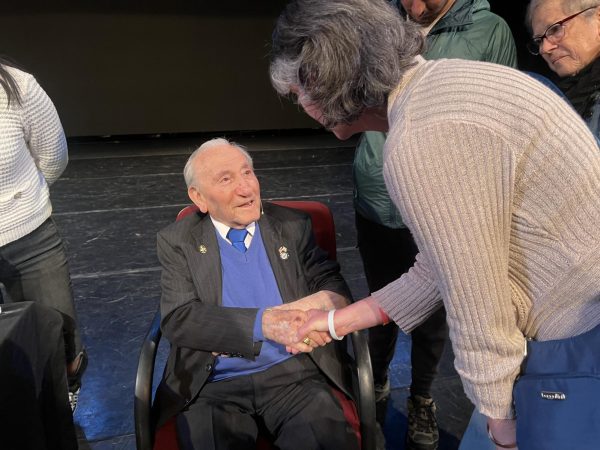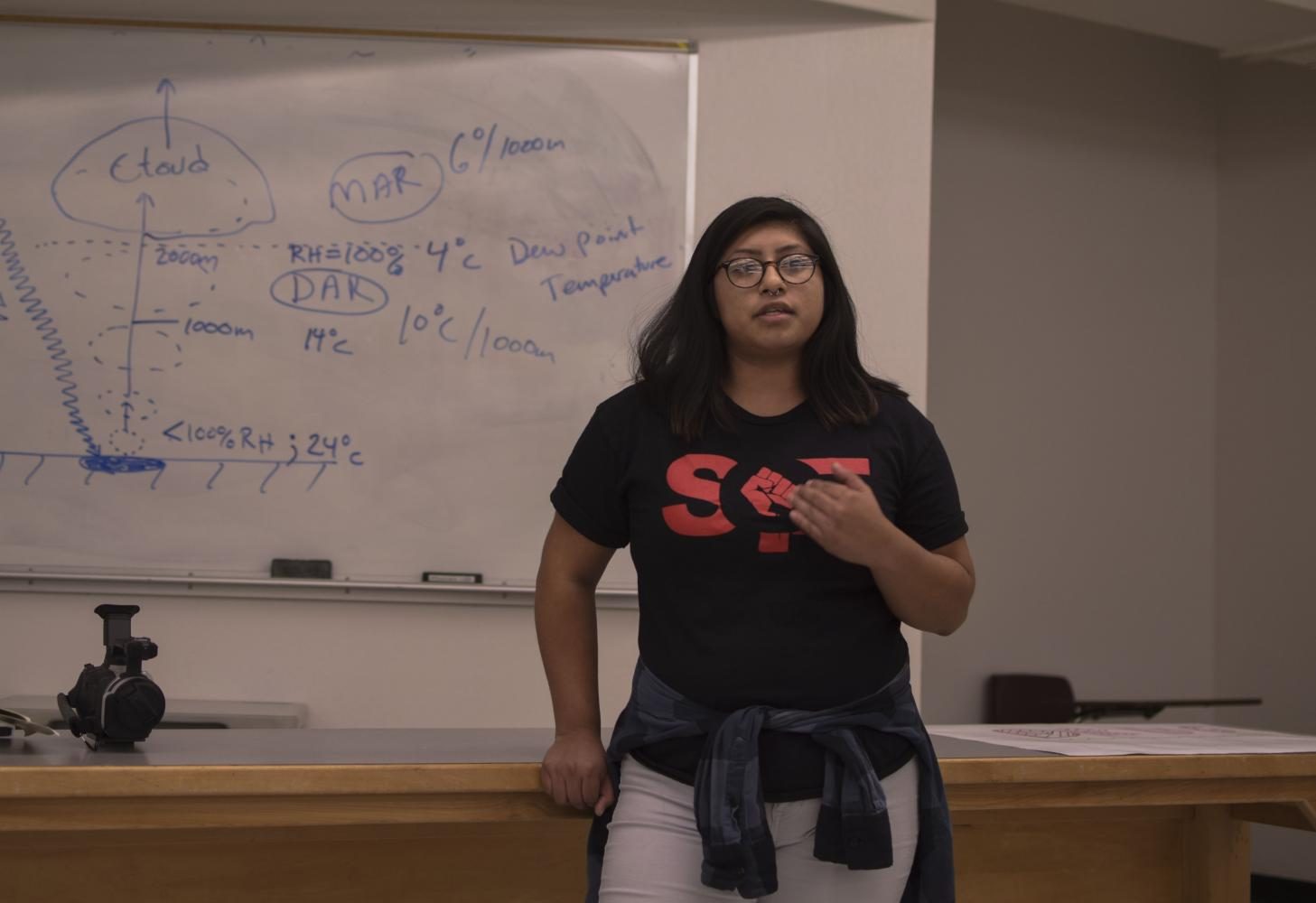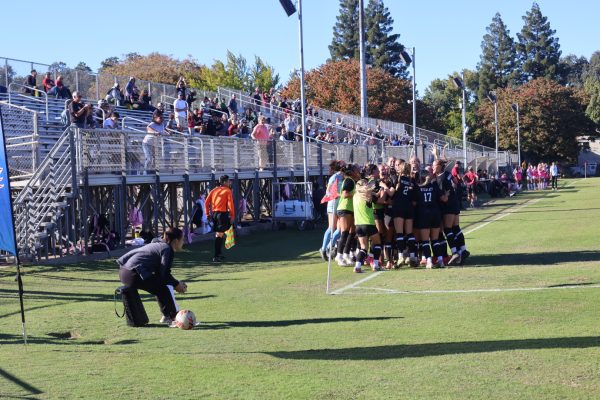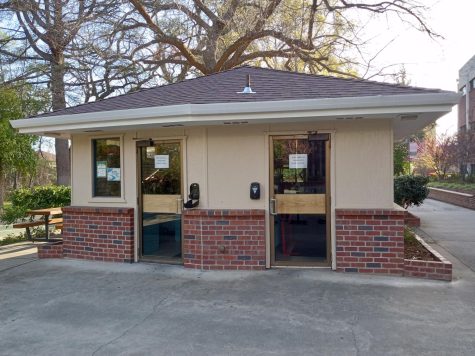Faculty and students share human side of humanities budget cuts
HFA student speaks about her concerns over budget cuts and what that may mean for her future. Photo credit: Anisha Brady
The College of Humanities and Fine Arts cut 68 classes this semester due to budget cuts. Students, faculty and administrators gathered in Plumas Hall Wednesday night to discuss the ongoing Humanities and Fine Arts (HFA) crisis.
Attendees shared their experiences with the HFA budget ranging from personal stories to the dollar figures behind the conflict. Faculty agreed that HFA majors are declining across the nation yet the HFA college is an essential part of every university.
Dean of Humanities and Fine Arts Robert Knight explained while HFA is over budget this year, the college has experienced similar issues since 2001.
“Right now we’re 700,000 in the hole,” Knight said. “This has been a long-term issue in the college, it will be a long-term issue going forward.”
For 10 years, Chico State has used the allocation model called the ABC model to distribute money to each college. The model allocates the most amount of money to upper division courses and the least amount of money to GE courses.
This model works for the other six colleges but the HFA college is in a unique position. Since HFA faculty teach more GE classes than most colleges and HFA majors are consistently declining, Chico’s HFA college receives a smaller chunk of the school’s total budget each year.
The ABC model factors numbers, but doesn’t take into account students like Latin American Studies major Elybeth Alcantar who is directly affected by budget cuts.
“I was a Spanish major as well, but just last week I actually dropped the major because it’s just become just extremely overwhelming for me,” Alcantar says. “It’s really really difficult when I’m asked to be a student ambassador and how am I going to come and tell the new students that my college is the best college when I can’t even get into the classes I want from my college?”
Due to concerns with the ABC model, Biology Professor Jeff Bell is organizing a task force to re-evaluate the allocation model. While adjusting this model hopefully will help the HFA college, according to Bell and Dean Knight these adjustments alone won’t completely solve the budget issues.
Bell explained that there’s no one correct answer or model to this issue so the goal is to come up with a compromise everyone can agree on.
“My rules of modeling is number one all models are wrong, number two is some models are worse than others, number three is, choose wisely,” Bell said. “The ultimate goal is to be fair to all the students…so whatever the students are coming to do, we best fit their needs.”
Some faculty speculated that the capitalistic nature of American society has led to an increase of business majors because students are more focused on monetizing their college paths rather than follow their interests or passions. This includes pressure from parents, peers and society to choose a major that produces economic success right after college.
Political Science and Criminal Justice Professor Michael Coyle said the role of humanities is larger than any one college.
“We’re actually here reproducing the values of a society that we attest to and that we are trying to continue to the next generation,” Coyle says. “The role of the humanities is absolutely central, probably the single most important college in the university if we could make such a disgusting statement.”
Until administrators and faculty can begin to fix this issue, HFA students will continue to face scheduling difficulties.
Anthropology major and French minor Rose Auer explained to audience members that the budget only shows the statistics, not the human side of the HFA crisis.
“Consider the ramifications of actions made when budgets are being cut, when classes are being combined, these are not abstract numbers, these are not just lines on your excel spreadsheet, these are people, these are real students,” Auer said. “They are making real-life education and career changes because of opportunities that are or are not afforded to them based on the decisions made by faculty and administration.”
Alex Grant can be reached at [email protected] or @AlexThomasGrant on Twitter.
